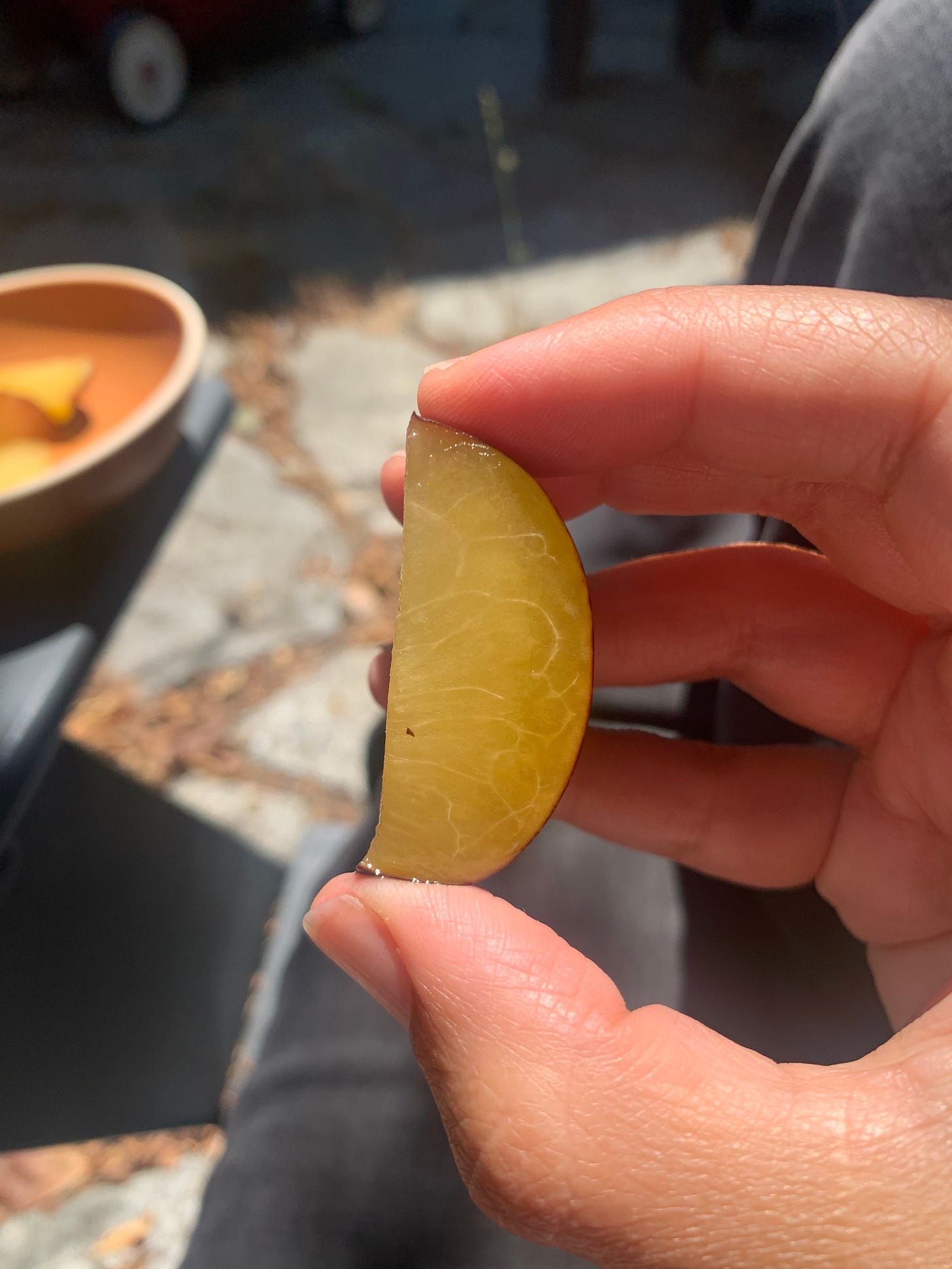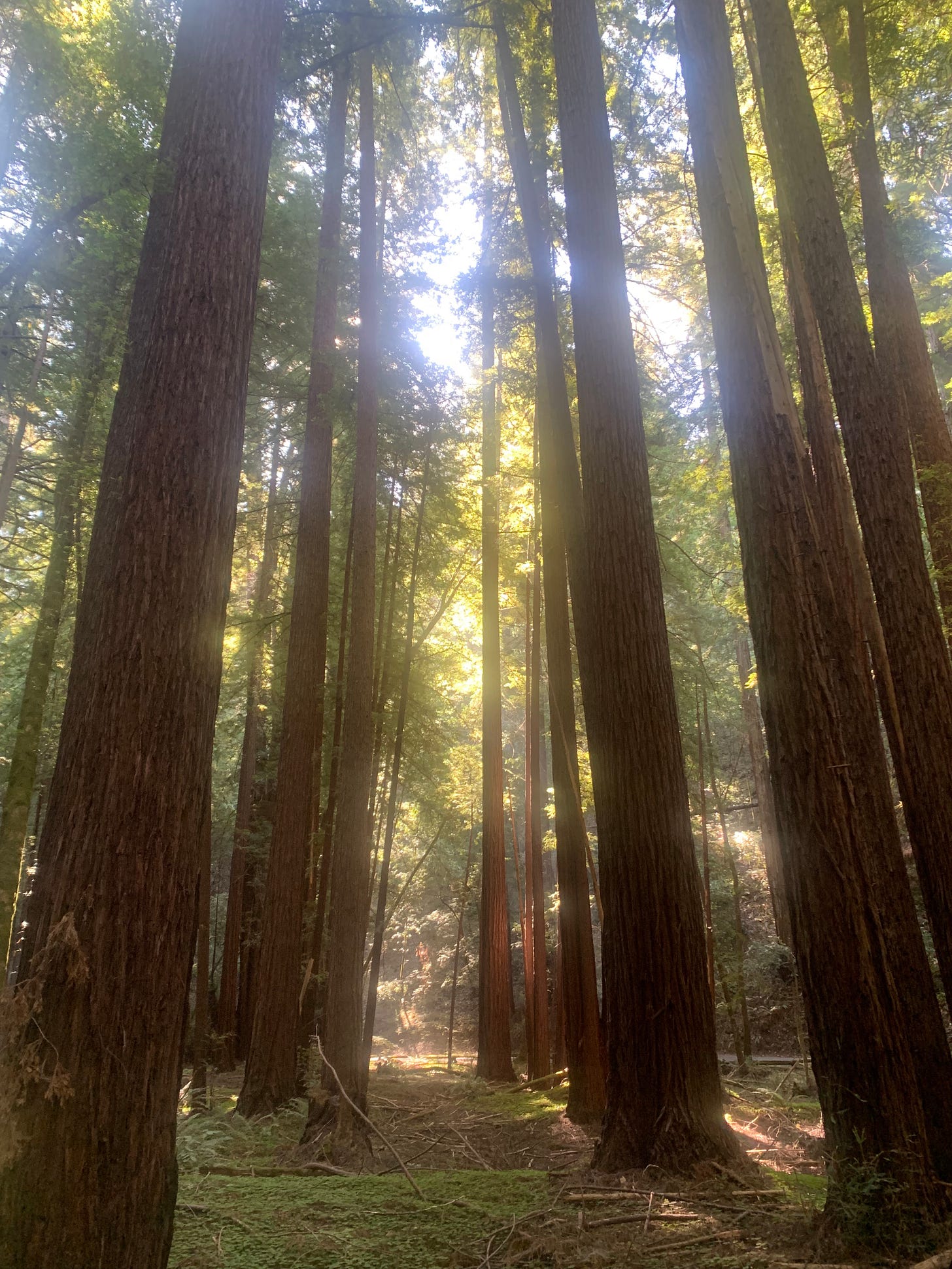How to create a sabbatical
especially if you're a freelancer
“Caring for myself is not self-indulgence, it is self-preservation and that is an act of political warfare.”
-audre lorde
For me, a significant pause from my work life—in my case two months—was not so much an act of self-preservation (though I love lorde’s idea here) as self-edification.
Let me explain: I have been working since I was 15 years old. Even while going to college and graduate school full-time I worked—as a waitress, a tutor, a babysitter, at many a nonprofit and literary outlet. I was blogging regularly by my early twenties—meaning writing, publishing, and responding to comments on at least a half dozen posts every week. I got my first book deal when I was 25 and all the pressure that came with it. I had a weekly column for a major outlet starting in my late 20s and never really stopping. I have written four books of my own and worked on many others as a ghostwriter, editor etc. There have been a lot of words and a lot of churn in my life. Nose to keyboard. Go. Go. Go.
So as I inched towards midlife, I grew hungry to pause and take stock of what I’ve put out in the world, how I’ve earned money and used all this creative energy and attention. I grew hungry to test some hunches about my emotional life—did I use work as anxious bypass? (Yes.) Was I addicted to the feedback? (No.) Could I feel myself worthwhile when not producing? (Yes, though still not reliably.) For more on all that, check out my first dispatch upon return.
I found pausing, re-reading much of my work, reconnecting with the little plot of land I live on, making art, following my body’s whims to hike and rest and swim and play, was deeply edifying. I like myself. I love my work. I’m proud of what I’ve put out in the world. (This is what adrienne maree brown means when she asks us to move towards being satisfiable.) I’m hungry to make more work that pushes me and you to think and see and live differently. I started those two months feeling like a wind-battered sapling and I finished those two months feeling like a big ol’ Redwood.
I studied my roots and realized how deep they go. It didn’t solve all of life’s problems, but it did something very sacred and significant for me: it made me feel like I knew myself differently.
Pauses like this are a total privilege, but they shouldn’t be. They are more typical in the academy and/or in law firms, but in most other fields, they are still rare. Some visionary foundations have realized that funding nonprofit leader sabbaticals is a great investment for everyone (I wrote about this awhile back for The New York Times.) I’m a freelancer, so I had to initiate, structure, and fund mine on my own. If you have an employer that has a sabbatical program, take it! If you don’t, and have the support and economic capacity to create one, do it! I promise you will be preserved and/or edified by the experience.
For freelancers, here are some very practical tips, drawn from questions that readers sent me:
If talk of sabbaticals irritates you or makes you jealous, pay attention to that.
There were a few people that I mentioned my sabbatical to who bristled and then spent some time convincing me that they could never do such a thing because their organization would fall apart or they couldn’t swing it financially. I don’t doubt that for some people taking a sabbatical really can be untenable or undesirable, but for too many people, it feels impossible because of an anemic imagination about who might step up in your place and/or how much money is enough (not to mention what this kind of time is “worth.”)
Plant the seed for your sabbatical well in advance! Future you will thank current you.
I have multiple ongoing collaborators whom I knew would be impacted by me taking some time off, not to mention my husband, so I told them in December that I wanted to do this in July/August the following year. That was good for a number of reasons. While my collaborators were all super supportive, I think it helped that it seemed sort of abstract at that point. I don’t think I would have even been able to follow through if it weren’t a bit abstract for me. By the time June rolled around, I couldn’t believe I’d had the ovaries to ask for it! It also helps collaborators plan what kind of work to take on and how to shift responsibility, and gave me and John to plan for the financial hit (Substack subscriptions was my only source of income during that time…thank you!!!).
There is no one-size-fits-all perfect amount of sabbatical time, but definitely push your own comfort zone.
When I told people I was taking a pause, they would inevitably ask me how long it would be and when I said “two months” I got a wild range of reactions. Some people thought that was a huge amount of time and some people thought it was totally inadequate. I would have loved to take more time, but two months felt extravagant to me. Saying it out loud made me pretty uncomfortable. That’s how I knew I was on to something. In other words, I don’t think there is a correct amount of time to take a pause, but I do think that if you’re going to go to all the trouble to ask for time off and figure out how to swing it financially etc., you sure as hell better take enough time that you feel pushed and changed by the experience.
There is also no one-size-fits-all structure, but resist the urge to turn your sabbatical into one more project.
I noticed that I really had to resist bringing a to do list mentality into my sabbatical. My brain is wired for projectizing things, so for example, I’d think, “Huh, maybe I can make some art on sabbatical?” Before long, my brain would be saying, “Oh yes, I could do a think where I make art every single day and take a picture of it and then…” No, no, no. No formalizing. No challenges. No performances. (This is also why I really recommend getting the hell off social media for your sabbatical.) Instead I tried to treat each day like a blank slate. I asked myself: what does my body feeling like doing today? what does my body feel like doing this hour? If organizing a cabinet felt good, I did it. If reading on the couch felt good, I did it. If hiking half the day felt good, I did it. I had a group of experiences I thought might feel great, but I didn’t hold myself to any plan around them.

My only regret is that I probably didn’t spend enough time alone. I am sort of always in a push-and-pull with my introversion and extroversion. As you move into your sabbatical, ask yourself what kind of time your body is begging for? Is it solitude you’re craving, or do you need more time in the wonderful world of other people’s energy and ideas?
Use new tools so you can have new eyes.
On a normal workday, I’m stuck to my computer much of the day. That’s why I pledged to myself that I would stay far away from it as much as possible during my sabbatical…and I did! I wrote by hand, filling more journal pages in a short amount of time than ever before, making weird maps and drawings and notes everywhere. Bonus: my lower back, which had been giving me trouble, was pain free the entire two months.
Whatever your typical workday is, whatever tools you typically use or settings you particularly spend time in, mix it up. Get your body moving in a different way and your mind and heart will follow suit. That’s where the real restoration comes from—using muscles and parts of your brain you’ve neglected, breaking down your relationship to time and building it back in more healthy, intuitive ways. I found I looked at clocks way less on my sabbatical and that was a wonderful thing, even if it did make me a little unreliable!
Go somewhere beautiful for your sabbatical. Or, then again, go nowhere at all.
I have two small kids and a partner who isn’t off work, so I knew I wasn’t going to Bali for two months. In some ways, that was sad, but in other ways, I realized it was a big relief. I got to be home, in my own space, metabolizing all the things in life I never have time for, sleeping in my own cozy bed. It was truly restorative in a way that going somewhere exotic isn’t, because you’ve got the learning curve of being away from your own creature comforts. That might not be the right choice for everyone, but for me it was really wonderful.
If you have the craving/capacity to travel for your sabbatical, check out my friend Abby’s and her family’s global extravaganza. She also wrote this on her approach and there’s so many great ideas in there.
Try to carry the zeitgeist of your sabbatical into your current work life.
First and foremost, this means supporting other people who want to take a sabbatical. I can’t wait until my collaborators approach me with a similar request and I get to return the favor!
But also this means that I am trying to bring some of the beauty of my sabbatical into my work life - asking my body what it needs and wants to do more often, building in mini-reflection times both alone and with thoughtful friends, simply doing less. I can feel the busyness rushing back in and I don’t love it. This is definitely a work-in-progress.
But even as I feel the overwhelm, I also feel those deep roots. I know I’m proud of my work. I also know I’m not indispensable as a worker, but as a human, and sometimes that means saying no and/or not producing. I think that’s what audre lorde meant by “political warfare.” I know my worth isn’t tied up in my ability to produce stuff or be busy or show up at the meeting or be professionally impressive. More than knowing it, I felt it in my body for those two months and that’s not going away.
If you’ve ever taken a sabbatical and have more tips, please add them below. Or if you have more questions that aren’t answered here, lay ‘em on me!




For most of my career I was on an academic calendar, so I had a built-in switch up in how I spent my time.
But, like Leslie, I used the time for projects, some very clearly related to my work and others not.
Taking downtime to do just as I pleased has never been natural for me, particularly with three children.
My first was born when I was 32, my last graduated from high school and went to college when I was 62, by which time my middle one was back. And now a grandson.
I do like the weekly sabbath day sort of idea and have not given up on making it happen.
Such amazing time - this advice fits well for people taking short-term medical leave too. I am within a week of taking a month long FMLA leave due burnout/exhaustion. My doctor and therapist have been strongly advising it but I have resisted - "but I can't....who will do my work?" I am a finance head in a small state agency. I've told my boss and HR I'm running on fumes for months but they continue to not hear/care for my health needs. The final nudge came from the EAP counselor for managers who strongly encouraged me to take the leave too, saying I need to take my mental and physical health needs seriously versus worrying about the organization. I have two amazing neurodiverse kids, one of whom was diagnosed this spring at 16 yo. I know I'm likely on the spectrum too - and everything I read about autistic burnout resonates deeply. I am going to take the time - to rest, take long walks, putter in the yard, meet for coffee with wise people in my orbit, etc. Reading "Rest Is Resistance" by Tricia Hersey this spring started me on the journey. So thankful.